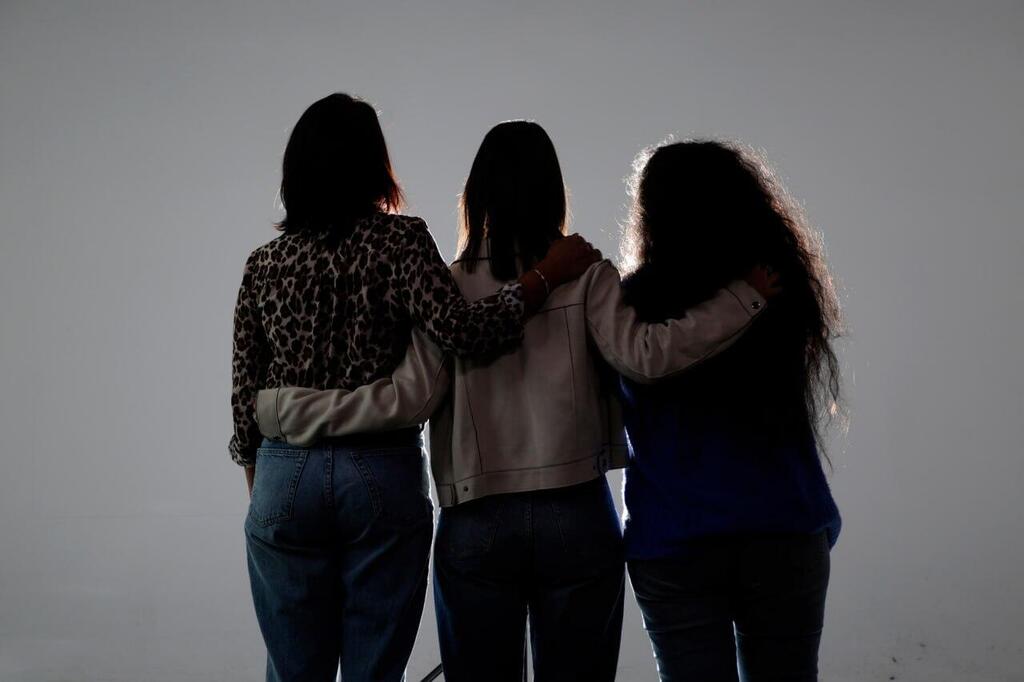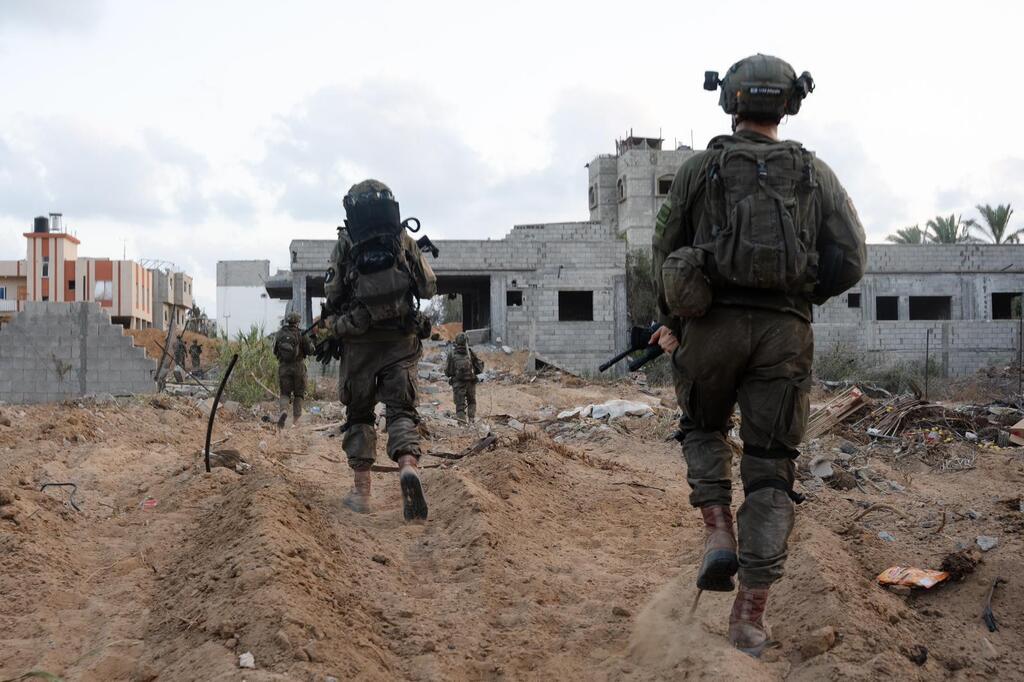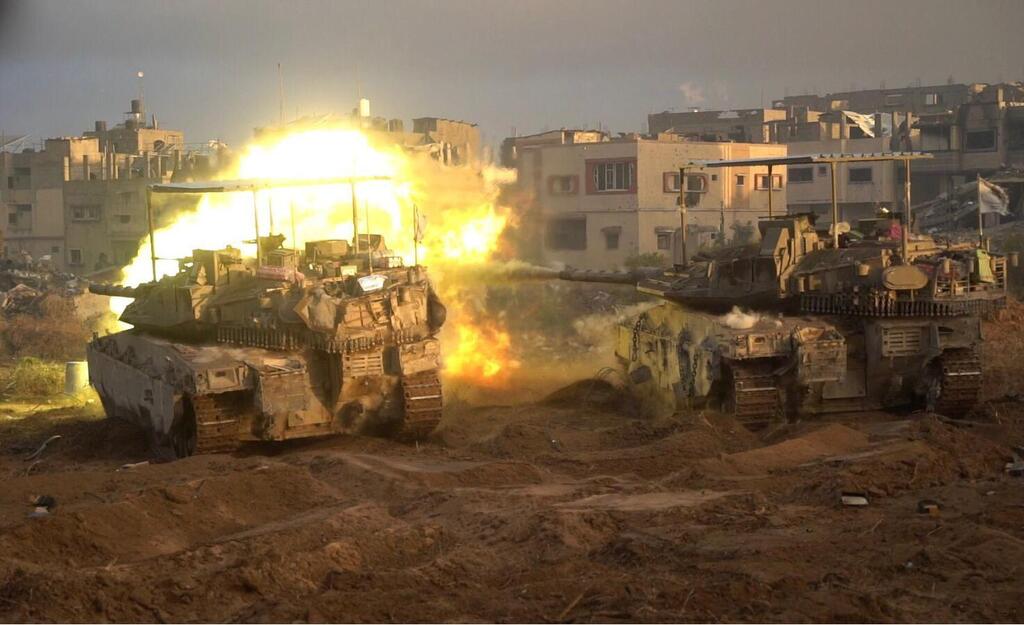When the attack began on October 7, Orna's son and his team were ambushed by terrorists near the border fence. "For three hours, he called for help on the radio," she recounts.
"When they were finally rescued, they went to one of the kibbutzim and walked among the bodies. To this day, he won't tell me what he saw there. He relives that day constantly."
3 View gallery


'It’s like teaching him to walk again'; from left: Naomi, Nurit and Liat
(Photo: Ryan Frois)
His commander was the first to notice the emotional toll, Orna explains. "He saw that my son was withdrawing, isolating himself. I realized it when he called us from the staging area and said, 'Mom and Dad, I want you to come.' My child never asked for anything. We came, and I saw a boy with empty eyes."
Four brave mothers of soldiers wounded on the war’s first day opened up about the challenges of coping with post-trauma, describing the pain, fear and their resolve to hold onto hope. "We are their anchor," they say. "We can't rely on anyone else to do it."
Initially, Orna hoped her son’s struggle was temporary, but his condition deteriorated. "It took me a long time to accept that my son has post-trauma," she says.
"At first, I thought he just needed to shake off the black dust of combat and he’d be himself again. But he kept sleeping, and when he talked, it was always about October 7. No matter the topic, he'd bring it back to 6:29 a.m. that day. He couldn't stand raised voices. He had a phase where he obsessively cleaned, then came the shouting and rage. Even now, he doesn’t sleep at night."
Get the Ynetnews app on your smartphone: Google Play: https://bit.ly/4eJ37pE | Apple App Store: https://bit.ly/3ZL7iNv
Orna adds, "He’s working hard to heal, but it's hard for me, too. Today, it's even harder than before. As a mother, the most painful part is now. I have a son who can’t study, work or get out of bed in the morning. He calls me at work and says, 'Mom, help me.' It breaks my heart."
Still in the same place
Nurit’s daughter also spent October 7 on her base. "The terrorists breached it," she recalls. "For hours, they hid while being shot at and bombed with grenades, as their friends were killed around them. She was injured by gunfire."
According to Nurit, the real struggle began after her daughter was discharged from the hospital. "At first, we were entirely focused on her physical recovery, but we couldn’t stop thinking about what she went through," Nurit says. "She didn’t really share her feelings with us—I think she didn’t want to burden us. But over time, we saw the signs: she couldn’t sleep and devoted herself entirely to commemorating her friends."
Even a year later, the family feels stuck. "She keeps everything to herself, saying she only opens up to her psychologist," Nurit explains. "We see the effects from the outside. We try not to push her because too much pressure takes her to bad places and makes her uncomfortable. I feel utterly helpless."
Something’s not right
Liat’s son had just begun his military service when Hamas launched its attack. "At 7:30 a.m., he called to say goodbye," she recalls, struggling to hold back tears. "He said, ‘Mom, I love you. We’re not going to see each other again.’ There was heavy fighting, and the sights they witnessed were horrific. When we spoke that night, he told me, ‘Everyone’s dead.’
"When he came home, I could see it wasn’t my son. He was completely empty. He refused to take off his weapon or his vest, saying he didn’t feel safe even at home. He pushed the sofa against the door and locked it. That’s when I realized something was very wrong."
Since then, Liat says she feels like she has to relearn how to raise her son. "It’s like teaching him to walk again," she says. "Until October 7, he was a different person. I started working from home because I have a son suffering from post-trauma, and I’m deeply worried. He stays up all night, and I wake up every hour to check on him. Then, when he finally falls asleep in the morning, I hear him screaming in his sleep.
"I’m terrified about what my son’s future will look like. Everyone knows we’re not in a normal situation, but at the end of the day, who’s dealing with this? We, the parents, are their anchors. If we don’t help them, no one else will."
Coming back to life
Naomi’s daughter was set to be discharged from the military shortly after October 7. "She was a combat soldier," Naomi says. "From 8:15 a.m. that day, she stopped responding to us. We later learned her unit was ambushed by terrorists and she was shot. Instead of heading off on her big post-army trip, she’s dealing with a devastating injury."
Naomi describes the initial period as fraught with tears, anger and frustration. "She was prescribed sleeping pills because she couldn’t sleep. She’s been diagnosed with post-trauma, but right now she’s more focused on her medical treatments and the scars left behind. Slowly, she’s coming back to life, but she still has moments when she breaks down, crying often, and makes every effort to honor and memorialize her friend who was killed."
"As a mother, I worry this will ruin her future," Naomi admits. "She’s beautiful and talented. It’s going to be a long road before she can return to work and studies."
Patricia Pasternak, a rehabilitation social worker at the Defense Ministry, says the greatest challenge for parents is "finding a new place for themselves in their child’s life. They’ve been through an upheaval. Life is a continuum, and the injury disrupts that—not only for the individual but for the family. These parents had a self-reliant child, and now they’re filled with questions: How much to restrict? How much to comfort? When to let go? These are questions no one prepares you for."
While physical injuries are easier to define, Pasternak notes that emotional wounds are more complex. "Parents see behaviors they don’t know how to interpret. They have to learn what those behaviors mean."
To help families cope, the Defense Ministry’s Rehabilitation Division runs therapeutic support groups specifically for parents of wounded IDF soldiers. These groups, held nationwide, are facilitated by therapists and social workers.
"We provide a continuum of support for families because parents are partners in the rehabilitation process," says Irit Gur, head of the division’s social services in the Rehovot district. "The goal is to create a sense of belonging and provide tools to help parents support their child and aid in their recovery."




